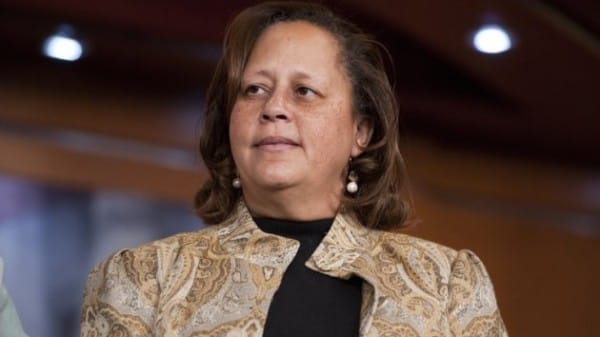(D) Reps. Janice Hahn and Laura Richardson Vie for CA CD-44

Photo: Tom Williams / CQ Roll Call

Janice Hahn and Laura Richardson, two Democrats, both incumbent members of Congress, are facing off in November for the same seat. The seemingly odd race between incumbent members of the same party is an interesting result of this year's new California open primary as well as redistricting, resulting in California's newly-redrawn 44th congressional district.
Representative Hahn may have a slight advantage in that it's only been a year since she was last on the campaign trail. Desperate to maintain their hold on a congressional seat that hasn't been red in over a decade, Democrats rallied behind Hahn in 2011 to defeat Republican businessman and Tea Party candidate Craig Huey in a special election after longtime Democratic incumbent Jane Harman stepped down last February.
Despite spending $900,000 of his own money, Huey would eventually lose what became an increasingly partisan and negative race, garnering 45% of the vote to Hahn's 55%.
The district had long been a Democratic stronghold. It voted for President Obama in 2008 and John Kerry in 2004 by margins of 30% and 20% respectively. Reports indicate, however, that independent voters likely played a significant role in determining the outcome of the race.
Tactics utilized by Hahn and Huey illustrate that both candidates were aware of the importance of courting independent voters. Citing measures taken by both campaigns, IVN contributor Christopher Guzman noted each candidate's attempt to remove any stigma of partisanship and appeal to voters across the spectrum:
"Both candidates will bring their own branding to July 12th’s special election. Hahn has served on the Los Angeles City Council since 2001. Huey has never held public office. On the campaign trail, Hahn recently topped $1 million while Huey followed with $839,514 (in large part financed by himself and loans he had taken out). Ultimately, the claims of both candidates, that they can appeal to a broad coalition of voters, will soon be put to the test."
This year, Hahn faces a worthy opponent in Congresswoman Laura Richardson as well, a member of the US House of Representatives since 2007. Richardson's constituency of the past several years may play an integral part in shaping the outcome of the race.
A majority of voters in Richardson's current district will be voting in the general election for the newly-created 44th district, 58% of which is currently being represented by Richardson, while only a small portion of Hahn's current district makes up the 44th.
The new district also includes a high percentage of racial minority voters (including almost 50% Latino voters and nearly 30% black voters). Born in 1962, Annenberg Digital News states that, "Richardson is likely to have the advantage of relating to minority voters. She is the daughter of a white mother and black father who remembers watching the civil rights movement unfurl on television."
Also standing in Richardson's corner is the Congressional Black Caucus, which endorsed her long before the June primary and has assisted in funding her campaign. Richardson has also received an endorsement from the California Legislative Black Caucus.
Richardson, though a more experienced candidate, doesn't come without setbacks of her own. Facing numerous damaging allegations of ethics violations, Richardson trailed Hahn in the June open primary by 20 points.
Perhaps some of the negative attention surrounding Richardson has contributed to the support Hahn has received from many Democratic leaders. Along with the endorsements of the California Democratic Party and the LA Times, Hahn seems to have the support of the Democratic House leadership, which let her share the stage with Nancy Pelosi and other members at the Democratic National Convention earlier this month, but left out Richardson, a rather unconventionally strong signal from leadership on an intraparty race.
Neither campaign is likely to hold much of a financial advantage in terms of fundraising, both depleted most of their funds during the June open primary, and Representative Richardson has actually been listed as having one of the largest campaign debts among all politicians.
The new "top two" open primary system in California was originally proposed as a means of creating more competitive general elections, allowing independent voters and minority party voters the ability to have a stronger influence on the outcome of races. Such a system is sure to strengthen the voices of independent voters across the spectrum as well in this election and in years to come. Having two incumbents of the same party square off is a good start.



